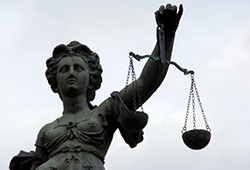 As we previously reported, on August 2, 2017, AbbVie filed a complaint against Boehringer Ingelheim (BI) in the U.S. District Court for the District of Delaware regarding BI’s aBLA for a biosimilar version of AbbVie’s Humira® (adalimumab) product. We also reported last month that BI answered AbbVie’s complaint, and included counterclaims against AbbVie for invalidity and non-infringement.
As we previously reported, on August 2, 2017, AbbVie filed a complaint against Boehringer Ingelheim (BI) in the U.S. District Court for the District of Delaware regarding BI’s aBLA for a biosimilar version of AbbVie’s Humira® (adalimumab) product. We also reported last month that BI answered AbbVie’s complaint, and included counterclaims against AbbVie for invalidity and non-infringement.
On October 2, 2017, AbbVie answered BI’s counterclaims denying that BI was entitled to a declaration of invalidity or non-infringement of the eight patents at issue (U.S. Patent Nos. 8,926,975; 9,018,361; 9,090,867; 9,096,666; 9,255,143; 9,266,949; 9,272,041; and 9,546,212). AbbVie also denied BI’s allegation that AbbVie has “engaged in a pattern of pursuing numerous overlapping and non-inventive patents for the purpose of developing a ‘patent thicket,’ using the patenting process itself as a means to seek to delay competition against its expensive and lucrative adalimumab product” as well as BI’s allegation that AbbVie’s “patents do not represent innovation, but rather are attempts to claim methods of treatment, methods of production, and formulations derived from the prior art for the purpose of creating a patent thicket or estate that competitors must, as AbbVie has publicly stated, ‘contend with’ to sell the active ingredient” in Humira®. In its answer to BI’s counterclaims AbbVie asserted a number of affirmative defenses, including an affirmative defense that “Boehringer cannot maintain the asserted Counterclaims because they have not complied with the BPCIA.”
